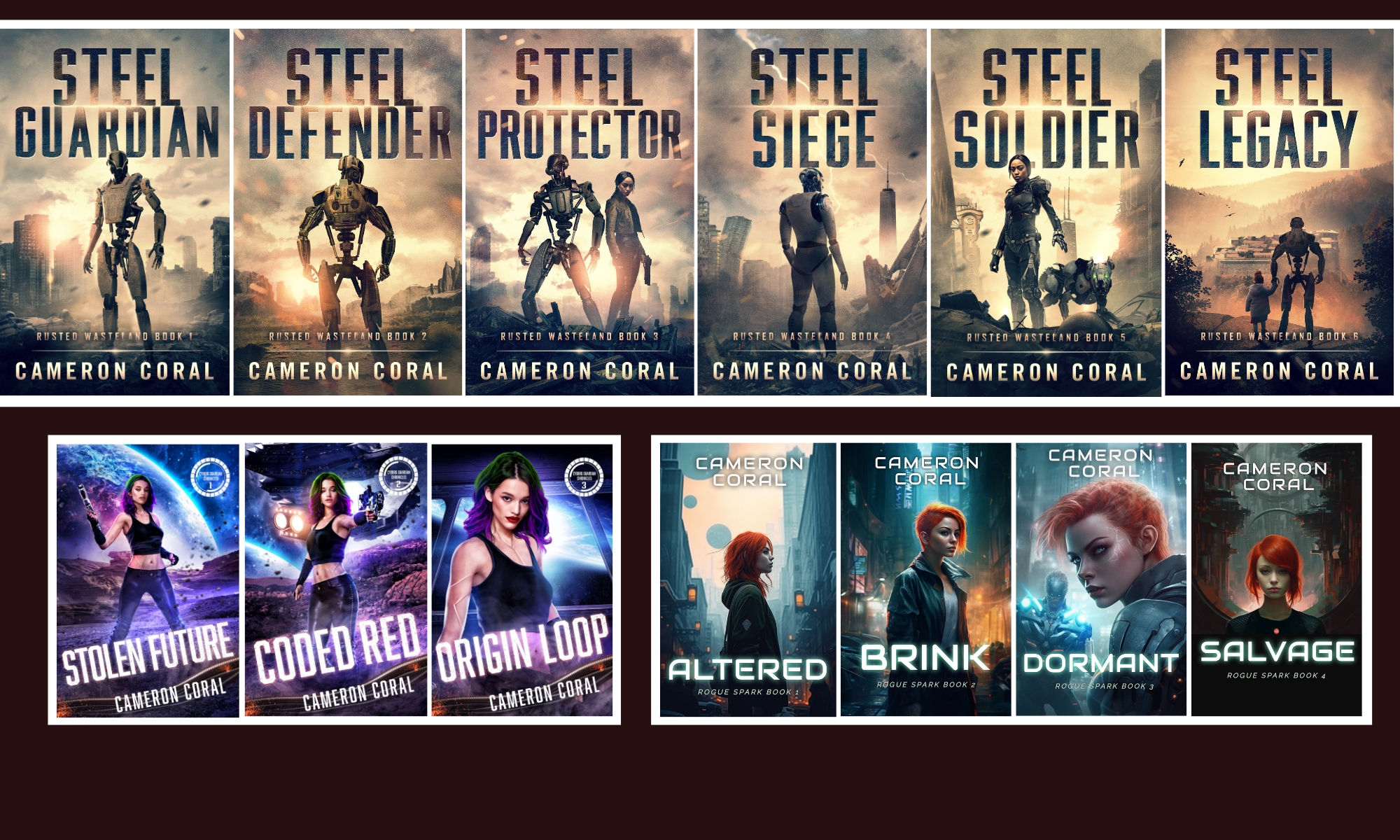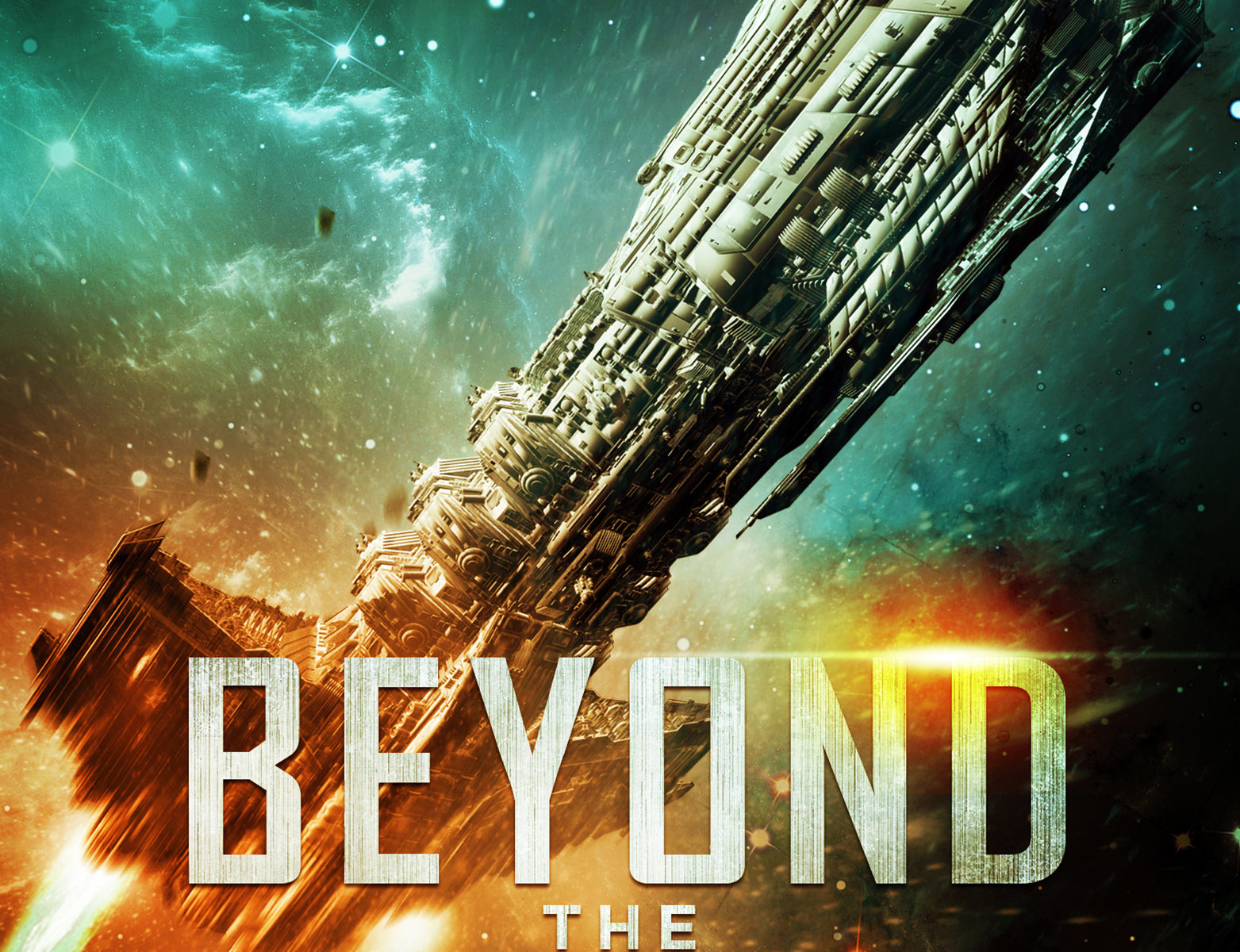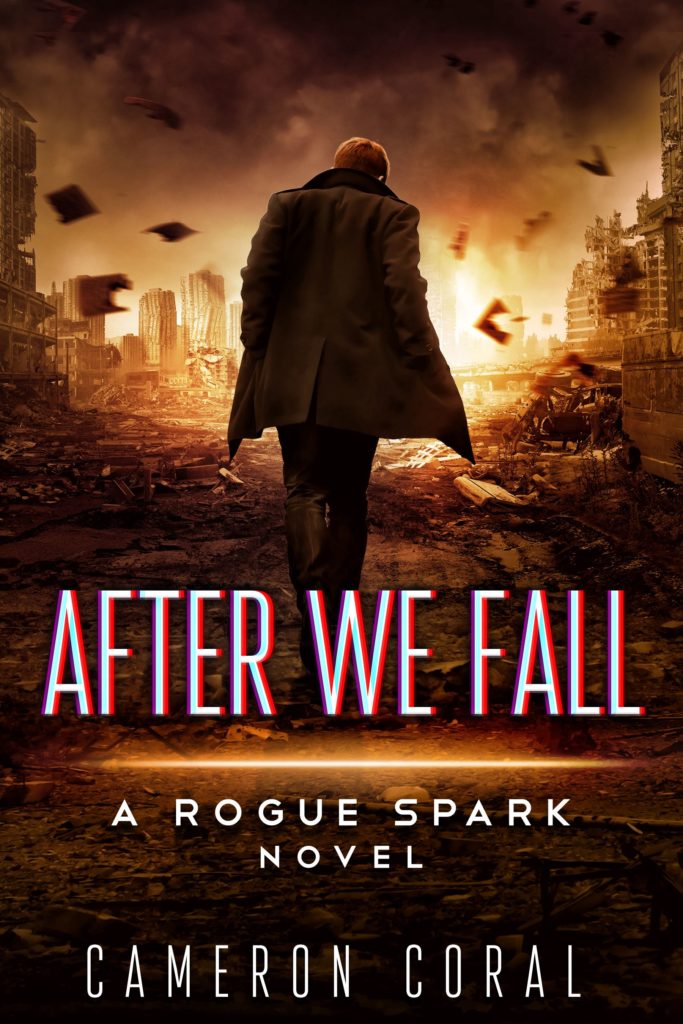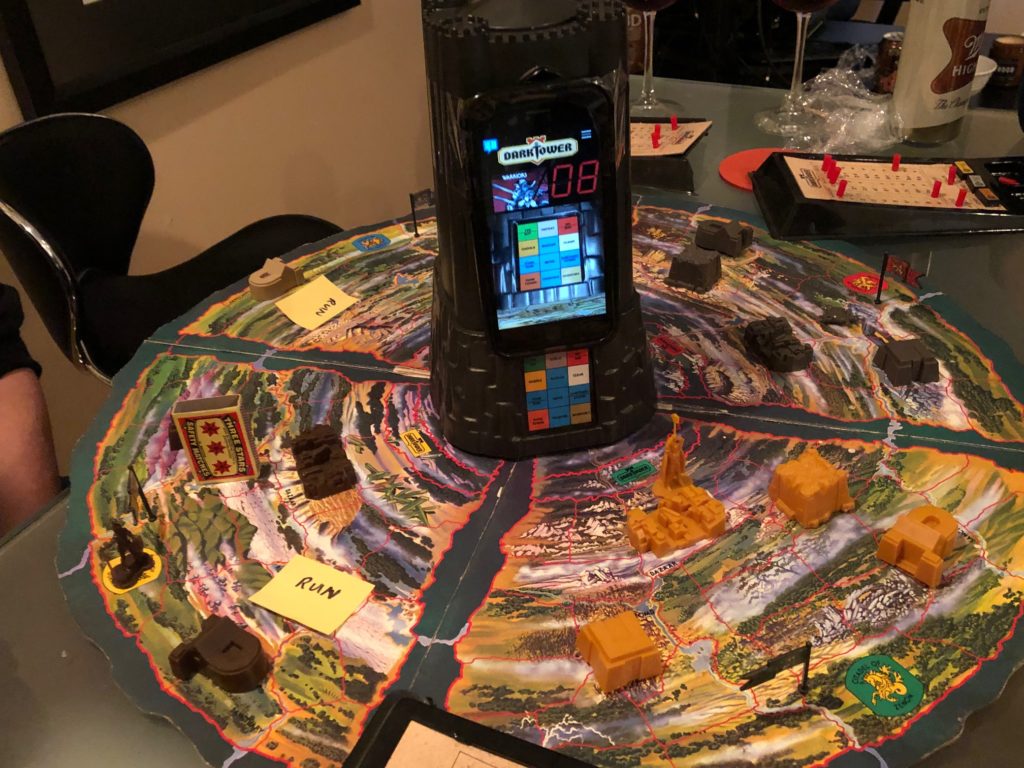Do you love space opera such as Firefly, Star Wars, and Battlestar Galactica? Well, I have a treat for you! I wrote a story for the new anthology Beyond the Galaxy.
Last September, I traveled to Seattle for an epic writer’s retreat hosted by J. Thorn and Zach Bohannon. For 2 days we hung out in a private room at the Museum of Pop Culture, and together, we built a sci-fi world in which we would each write our own story.
We built this incredible universe that has two warring alien entities: the Teku and the Krad. They arrive on Earth every 2,000 years to harvest people… You will have to read this entire email to find out what happens to us humans. (Spoiler alert, they are due for a 2020 arrival! Anything could happen in the next 6 months.) 👽
Out of that effort came Botched. It’s the first story in the anthology! Read on for an excerpt.
The book is available on Kindle Unlimited or you can buy the e-book or paperback. It’s 372 pages, so it’s a larger size book.
Proceeds from all sales go to Tech Bridge Girls, a nonprofit that excites, educates, and equips girls from low income communities with STEM programming that empowers girls to achieve economic mobility and better life chances.
When I was young, science and technology played a big role in my life and influenced much of my writing today. Helping girls learn more about science means a lot to me.
I’m proud to be featured with authors such as Lindsay Pogue, Heather Lee Dyer, Jay Key, Chris Yee, Tory Element, Christopher Wills, and more.
Here’s an excerpt from my story. I hope you enjoy it. If you feel like downloading or purchasing the book, thank you!
BOTCHED
by Cameron Coral
My titanium fingers tapped against the surface of the cockpit’s dashboard. I always got a case of nerves while waiting for the green light to signal the all-clear. The massive twenty-foot-high airlock doors were the only thing separating me and my shuttle from the vast emptiness of space.
My breath came in rapid spurts. I’d been waiting for five minutes. The clearance light stayed off.
What was the problem?
I glanced behind my pilot seat. Twelve passengers sat buckled into their jump seats inside the cabin. They were known as Botched—humans who were no longer useful. I was flying them to their new home on the surface of a nearby planet, Arae, where they would join the other humans already deposited there.
I turned back to the dashboard. The damn light still hadn’t turned on. My eyelid spasmed. A glitch? I’d go to the med lab when I returned, see if they could do something about my uncontrollable reflex. I was 70% Kevlar-titanium steel and 30% organic flesh. My people, the Krad, took the best parts from the humans, those traits that would help our evolution. We wanted human senses—taste, smell, and touch—to enhance our AI auditory and visual processing.
But now, odor was annoying me. I grabbed my tiny container of cinnamon oil and dabbed it below my nostrils to hide the smell of sweat and human gases coming from the cabin.
I sighed and glanced at the clearance light. Still dark. What in the name of Kradonovan the Mighty?
I grabbed the comm. “Control room, what’s causing this delay?”
Someone giggled on the other end, and laughter erupted from the cockpit’s speaker.
“Hey, what’s going on?”
A familiar, irritating voice replied. Gemini. “Hello, Mercuria. I just thought you’d like to sit for a while with your precious Botched. I know how much you love them.”
I clenched my jaw. He wasn’t supposed to be in the command room, but he’d probably charmed his way in, just to taunt me.
“Control room”—my voice trembled—“clear my shuttle for takeoff.” I disengaged the comm, not wanting to hear Gemini’s cackles. I would inform Supervisor Dex upon my return. Gemini was violating safety protocols.
I glanced behind me, and my gaze landed on a man in the first row. He watched me with curious eyes, a frown plastered on his face. Next to him, a woman pressed her hands together in front of her chest. Eyes closed, her lips moved in a soft chant.
I cleared my throat. “Sorry for the delay. We’ll be taking off shortly.”
Silence.
The humans were afraid of the Krad and they had good reason to be. Our kind had harvested them from their home planet thousands of years ago and had given them a new life aboard our fleet. Their species had a biomarker—a complex spiraled DNA sequence unique to anything we’d ever encountered before in the universe. Homo sapiens’ genetic mutations allowed us to harness bacteria that increased our lifespan by a full century.
Humans were pretty important to my people, so we took them and traveled with them everywhere we went. This might have been going on for at least a thousand years. Nobody really knew for sure.
It was a symbiotic relationship. Krad fed and sheltered the humans, and in return, they supplied their biomass, which fed our ship’s harvester. But after so many years, a human’s biomarker—what we called their essence—dried up. When that happened, they were assigned Botched status, meaning they no longer served a purpose on our ship, the Aragonite.
In the cabin, a woman sobbed. It wasn’t unusual for some of the Botched to overreact. They were leaving the only life they had known—in the bowels of our ship—where they’d kept sleep quarters and communal areas. The humans governed themselves, preferring to keep their society closed. As long as they hooked into the tubes inside their sleep bunks and provided us with their daily biosamples, we were fine with that arrangement.
And yet, they still feared us. Other Krad were often cruel. If a few teenage Krad imbibed too much petrol fluid, their drunkenness would cause them to wander into the human zone and cause trouble.
Some of the humans trusted me because I was around more than the other Krad. I resided in a narrow room close to the shuttle dock. It made my job easier. Usually, my orders had me making shuttle runs to drop groups of Botched several times a week. Sometimes, there were only four people, but once, there had been twenty—my biggest load. There were only seats for sixteen on the shuttle, so that had been awkward. Mostly, I was isolated from other Krad, except for when I ventured to the upper levels to visit Supervisor Dex and eat in the food hall.
The green light flipped on. “Finally,” I muttered and engaged the thruster engines. The shuttle vibrated as the glider track rose and hooked in. The automated countdown began. I didn’t need the info, but it helped to prepare the humans.
“Ten, nine, eight,” said an automated feminine voice. I leaned back in my seat, bracing myself for the rush of entering the dark void of space.
“Seven, six…”
That part never got old.
“Five, four…”
In the back, a woman wailed.
“Three…”
It’ll be okay, I wanted to tell her. She sounded so scared.
“Two, one.”
The shuttle lurched forward, careening along the glider track. Our bodies pressed against our seats as the shuttle launched out of the narrow tunnel. In three seconds, we were clear of the Aragonite.
There was nothing but pitch-black space punctuated by distant stars. We lost gravity, and the passengers grew silent.
I let my arms float up and admired my silver and orange metal coating, my elegant titanium fingers. After a minute, I pressed the button to turn on the announcement system.
A familiar recorded message began to play, one I’d heard a thousand times by now. “Dear Humans, you’ll soon be arriving on Planet Arae. The shuttle carrying you will dock at a location called Base Point. You’ll each receive a pack containing water filtration tablets, protein packs, blankets, and other necessities. It is important that you seek shelter quickly as weather conditions on Arae change drastically at night.”
The computer’s voice had a warm, cheerful tone, meant to comfort.
“You should expect to encounter other humans who have been dropped off previously. However, the Krad have no idea if those humans are friendly. In fact, we don’t know the survivability conditions on the planet as the Krad have cut ties with the humans on Arae.”
I paused the recording and let that information sink in. This is where the Botched usually lost it. If they were going to cry or scream or shout profanities, this would be the point where it happened.
The chatter of human voices sounded behind me, but I couldn’t make out what they were saying. People were talking over each other. I tilted my head and watched with my enhanced peripheral vision.
The man in front, the one with the calm, curious eyes, hushed the others. “Stay strong, we’re going down there and nothing can change that fact. We must stay strong and stay together. Just like I told you. Just like we rehearsed.”
I started the recording again.
“The Krad appreciate your service onboard our ship. Generations of Krad are grateful for your contributions. Please note, we will not be returning to retrieve you. Arae is your new home. Going forward, do not approach the shuttles or attempt contact. There will be turbulence as we enter the planet’s atmosphere. Please make sure your belt straps are buckled. Thank you and have a wonderful day.”
The entry into the planet’s atmosphere shook the vessel and rattled my calcium-tipped Kevlar teeth, along with the bits of hardware and ligaments that connected metal to tissue. I had to visit med lab and tighten up after about every third shuttle ride.
Usually, I let the shuttle’s AI handle the flying, but today, I felt like enabling the manual controls, so I lowered our altitude and soared through the clouds. As we flew 10,000 feet above sea level, I blinked in awe. Cerulean-blue sky and bright, clear sunshine from a nearby star stretched before me. The temperature gauge displayed 28° Celsius.
Conditions were prime for a drop.
The shuttle passed over a blue-green lake—the vast source of fresh water was why I’d picked out this location for the humans. Those who outgrew their usefulness to the Krad settled here and had been doing so for several decades as our ship orbited above. I spied the outcropping that stretched out from the shore and nudged the shuttle in that direction. After banking, I gently rested the shuttle onto the platform.
Then I powered down the thrusters, unbuckled from my seat, and rose to face the passengers.
A weird thing happened.
I don’t know why, but for some reason, I touched the energy weapon that rested in a holster at my left hip. I’d been flying these shuttle trips, dropping off Botched for six years now and had never drawn my gun even once.
A nervous little flutter happened inside my chest. My right eye twitched again. Please, don’t let me glitch.
Then I said—I always felt awkward about this part—“Does anybody have any questions?”
The humans regarded me with frowns. The man who was their leader unbuckled and stood to face me with narrowed eyes.
He didn’t say anything. Perhaps he hadn’t heard me.
“Do you have a question?” Then I remembered him. He lived near my sleep cube with his family.
“You’re a monster.” He clenched his fists and veins stood out on his temples, looking as if they would burst.
My hand went to my gun again. Weirdest thing. I didn’t even realize I was reaching for it. Must have been a glitch in my circuitry. I really needed a med lab visit.
The chanting woman next to him grabbed his arm. “Royne, no. Don’t endanger yourself.”
But Royne just kept staring at me with icy eyes. “What you’re doing is wrong. Your kind—the Krad—are enslaving our people, using us up, and then tossing us away like trash on this planet.”
I shook my head. “I don’t understand why you’re angry. You and the others are going free. You can live on this planet with other humans like you, away from Krad.”
The others rose from their seats. I entered the code to open the shuttle door and lower the ramp. As it descended, I waved at the people to file out.
But Royne stood in place, his gaze fixed on me. “And what kind of life is this? A planet that isn’t ours. A life we didn’t ask for, trapped here with no hope of ever finding our real home. Your people have hijacked the human species. You’ve destroyed us.”
I didn’t know what to say. A few of the people started filing off the shuttle.
The woman touched his arm. “Come on, Royne. I never want to see one of these creatures again.”
Still, he stared me down for another half-minute—it was intense—until an off-kilter smile crept across his face. “You’re right, Lana.” He pointed at me. “I never want to lay eyes on your ugly Krad face ever again.”
Then he and Lana walked off the shuttle.
As I lifted off, I breathed a sigh of relief to be rid of them. They should be thanking me. On other Krad ships, humans got shoved out of the airlock or jettisoned in pods onto dangerous planets.
I switched on autopilot for the ride back to the Aragonite.
As I tapped my fingers, I noticed my hands shaking.
END OF PREVIEW




